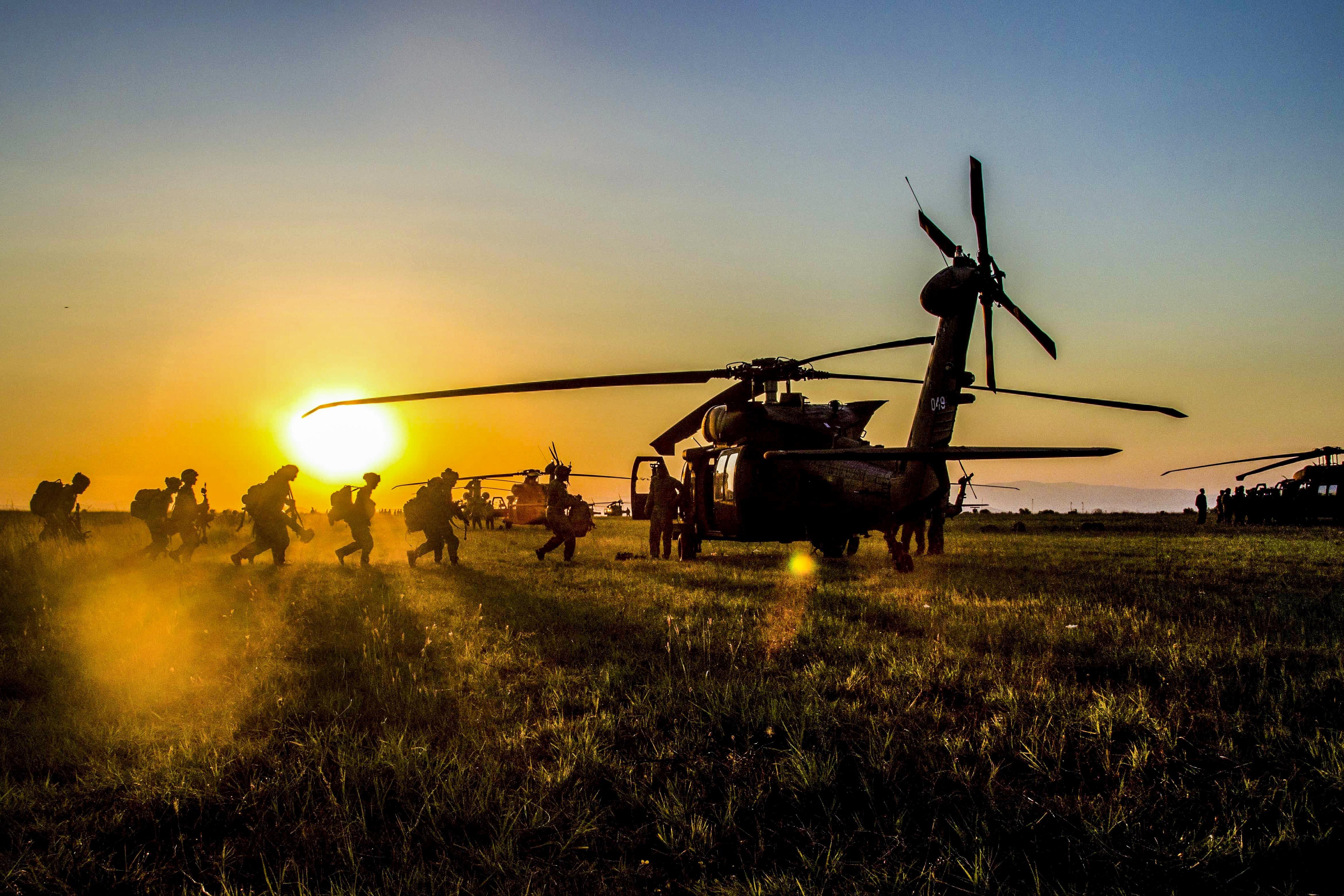An Army exercise at an abandoned hotel in Raleigh, North Carolina, rattled some residents and forced city officials to issue an apology and promise that exercises of that scale won’t occur close to city neighborhoods again.
U.S. Army Special Operations Command requested to use the vacant Capital Plaza Hotel in northern Raleigh Thursday night and early Friday morning, due to its unique condition and urban location, City Manager Ruffin Hall said in a statement posted by the city council.
Although the operation was announced Thursday afternoon, residents complained that the helicopters, simulated weapons fire and munition explosions caused too much commotion and distress.
“The exercise turned out to be louder and more disruptive to the nearby neighborhood than the city anticipated,” Hall said in his statement. “Upon review and lessons learned, I would not approve an exercise of this scale and disruption adjacent to a neighborhood in the future."
The exercise was led and managed by Army Special Operations Command staff with support from the Raleigh Police Department.
Police provided support for emergency services, door-to-door visits by Army personnel with nearby residents and traffic control, among other services, the city said in a statement.
However, the Army’s “approach is that the public is not generally or broadly notified prior to the event to avoid attracting large numbers of spectators,” Hall said.
Raleigh and other cities in North Carolina have a long-standing partnership with the U.S. military, as the state is home to multiple bases, including Pope Air Field, Fort Bragg and Camp Lejeune.
It’s “not typical” for there to be this kind of community upheaval over training operations, Lt. Col. Loren Bymer, an Army Special Operations Command public affairs officer, told Army Times.
“We do training events similar to this across the United States," Bymer said, adding that there’s “always a little bit of forewarning” for those who live within the immediate vicinity of where training will occur.
“U.S. Army Special Operations Command is grateful for the support we receive from multiple community leaders around the United States in order to routinely conduct training in a variety of urban settings," Bymer said.
"These types of training events are necessary to maintain the readiness for the Army Special Operations soldiers,” he added.
A copy of a warning flyer was circulated over social media and reportedly posted around nearby neighborhoods. The flyer told residents that the military training operation would take place between 10 p.m. and 2 a.m., involving Raleigh Police Department SWAT units, loud noises, helicopter flyovers and simulated weapons fire.
In general, the military discourages on-lookers for safety reasons, Bymer said.
This exercise, and others like it, also provides training to public safety personnel, Hall said in his statement.
“Training is a necessary and critical element to building successful service operations, especially in public safety functions,” Hall said. “I support training efforts and the critical partnerships that grow from working together. Last night’s exercise was one example of the partnership.”
Residents in the area of the training exercise posted video and pictures over social media, complaining about the noises.
Some residents alleged that the government was “training” citizens to view military presence as normal and working to “make us accustomed to urban warfare.”
The U.S. military often utilizes abandoned buildings to simulate environments troops will find downrange, but which are not available on stateside bases in large enough numbers.
The hotel where the training operation took place Friday morning, while abandoned and dilapidated, is often filmed by local urban explorers.
Conspiracy theories and dissatisfaction with stateside military training occasionally occurs, with the large-scale Jade Helm exercise being the most prominent example in recent years.
Kyle Rempfer was an editor and reporter who has covered combat operations, criminal cases, foreign military assistance and training accidents. Before entering journalism, Kyle served in U.S. Air Force Special Tactics and deployed in 2014 to Paktika Province, Afghanistan, and Baghdad, Iraq.





